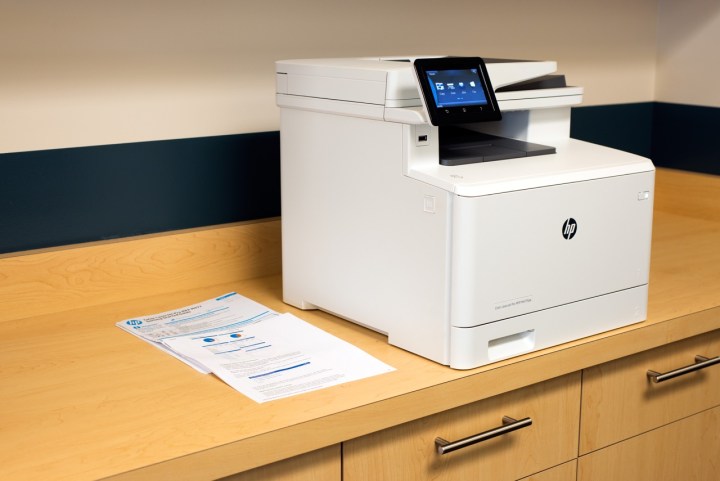
“HP customers should be able to use the ink of their choosing in their printers for the same reason that Cuisinart customers should be able to choose whose bread goes in their toasters,” the EFF’s Cory Doctorow wrote. “HP customers should choose HP ink because it is the best, not because their printer won’t work with a competitor’s brand.”
A firmware update with the code to render third-party cartridges inoperable was sent to OfficeJet Pro printers in March and was labeled as a “security update” according to the EFF. Starting around September 13, third-party sites were pummeled with customer complaints of cartridges no longer working, with the firmware reporting it as “damaged,” possibly hinting at the fact HP set a fixed date for the changes to take effect.
Doctorow saw it as a dirty trick, “HP knew, for at least six months, that some of its customers were buying your products because they believed they were compatible with any manufacturer’s ink, while you had already planted a countdown timer in their property that would take this feature away,” he argued.
The EFF is calling for the company to publicly apologize and also immediately release a new firmware update undoing the changes. Doctorow also wants HP to be more transparent when it comes to the effects of future updates. “By co-opting the security update mechanism to deliver an anti-feature — that is, something that works against your customers’ interests — you have introduced doubt into the patch process,” Doctorow wrote.
So far, Doctorow has not heard back from HP, he told ArsTechnica earlier Tuesday. The company has previously said on the change that it was about its “innovations and intellectual property,” and noted refilled and remanufactured cartridges with the new chip will continue to function.
That sounds like HP is not about to change things anytime soon.


